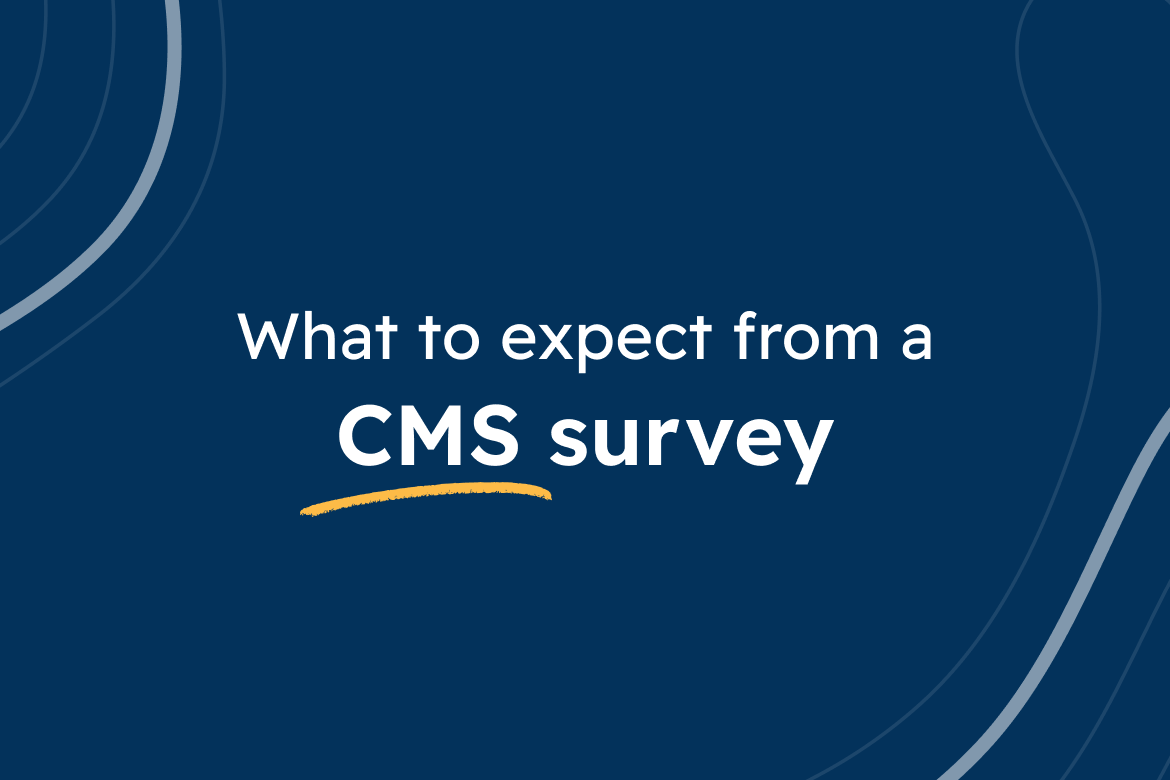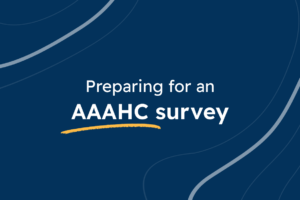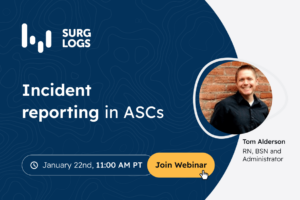The Centers for Medicare & Medicaid Services (CMS) is a federal agency responsible for evaluating the quality of care provided by healthcare facilities, including hospitals, nursing homes, home health agencies, and other healthcare providers that participate in Medicare and Medicaid programs. Healthcare facilities often pursue both CMS certification and accreditation from private bodies like QUAD A and AAAHC to demonstrate a commitment to meeting high standards of care and to appeal to a broader patient base.
To ensure compliance with their standards and regulations, and similar to many other accreditations, a CMS survey is typically conducted. While there are similarities between CMS surveys and other accreditation surveys, there are also key differences that make CMS surveys unique.
Be aware of the key differences and what to expect from a CMS survey:
1. A Focus on Medicare and Medicaid Compliance
CMS surveys are specifically focused on ensuring that healthcare facilities comply with the Conditions of Participation (CoPs) or Conditions for Coverage (CfCs) for Medicare and Medicaid. These conditions outline the requirements that facilities must meet to participate in these government-funded healthcare programs.
Because CMS is a federal agency, rather than a private organization, its surveys are tied to federal regulations. Compliance with these regulations is a prerequisite for participation in Medicare and Medicaid. Other accreditation surveys may be based on industry standards set by private accrediting bodies, which may not have the same legal and financial implications as CMS regulations.
Download CMS Infection Control Checklist
We will handle your request in accordance with our Privacy Policy
2. Conditions Specific to Facility Type
CMS surveys are tailored to the type of healthcare facility being assessed. Whether it’s a hospital, nursing home, home health agency, or other providers, there are specific CoPs or CfCs that apply to each type of facility. Therefore, if you manage multiple types of facilities, you may need to tailor your survey preparation per each facility type.
Additionally, be aware of regular changes to the survey requirements of your facility. Stay informed about updates to the Conditions of Participation (CoPs) or Conditions for Coverage (CfCs) for each facility type. Regularly monitoring CMS communications, attending relevant training sessions, and participating in industry forums can provide valuable insights into any changes or new requirements.
3. Integration with Quality Reporting Programs
CMS surveys are often integrated with various quality reporting programs, such as the Hospital Inpatient Quality Reporting (IQR) program. These programs collect and publicly report data on healthcare quality measures, promoting transparency and accountability.
Participation in quality reporting programs demonstrates your commitment to excellence in healthcare delivery. Beyond fulfilling regulatory requirements, engagement in initiatives like the Hospital Inpatient Quality Reporting (IQR) program serves as a catalyst for ongoing improvements, both with resources and procedures.
4. Ongoing Compliance Monitoring:
CMS conducts regular and unannounced surveys to monitor ongoing compliance with regulations. Accreditation surveys by private bodies may have different schedules and approaches to compliance monitoring. Essentially, when preparing for a CMS survey, preparedness is key.
In navigating regulatory compliance, it’s crucial for healthcare facilities to recognize the advancements technology has provided to healthcare facilities. A comprehensive compliance strategy is really only possible through both an understanding of the requirements, and a proactive approach led by process documentation and historical data recording and retrieval.
For this reason, top healthcare facilities are implementing Surglogs software into their operations, effectively demonstrating the organization, accuracy, and up-to-date practices required by accreditation bodies of all kinds. The software offers surveyors a comprehensive digital representation of all completed tasks, highlighting your commitment to streamlined processes and current, meticulous record-keeping.
Download CMS Safe Injection Practices Checklist
We will handle your request in accordance with our Privacy Policy
Technology Helps Healthcare Facilities Bridge the CMS Survey Gap
While parallels exist between CMS surveys and other accreditation evaluations, distinct differences set CMS surveys apart, making them uniquely structured and tailored to the specific requirements set forth by the Centers for Medicare & Medicaid Services.
Being aware of these differences may seem like they require additional staff or resources. But at the end of the day, a well-maintained, digital program can help facilitate this process and keep you on the road to additional accreditations, from government and private organizations alike.


